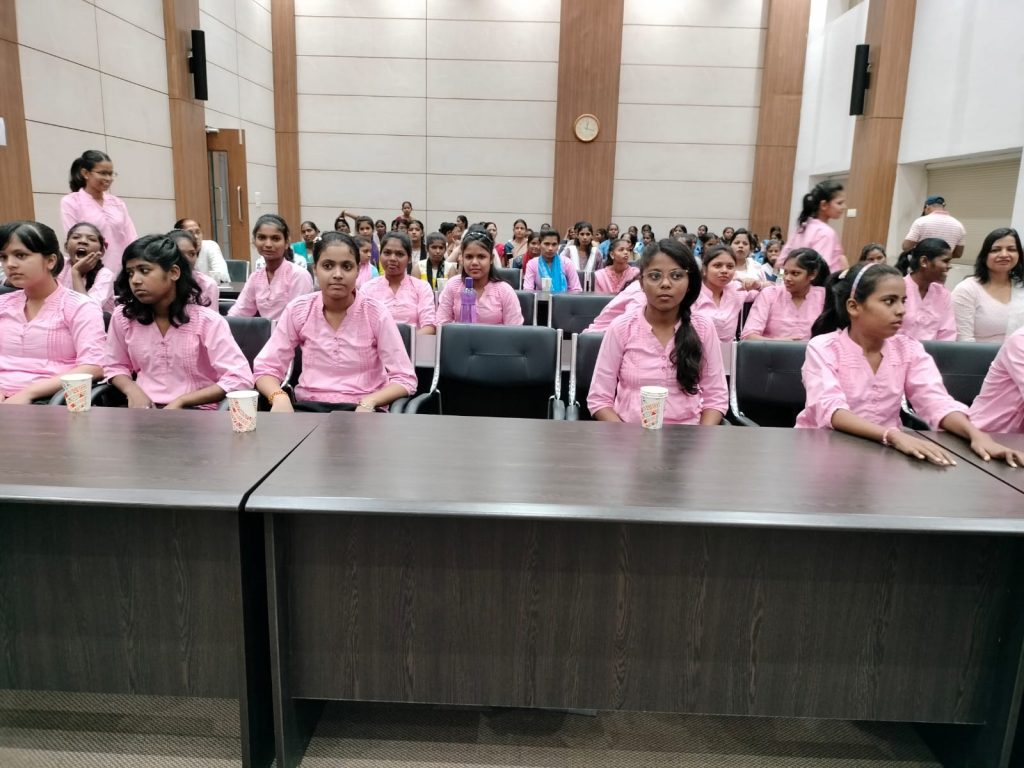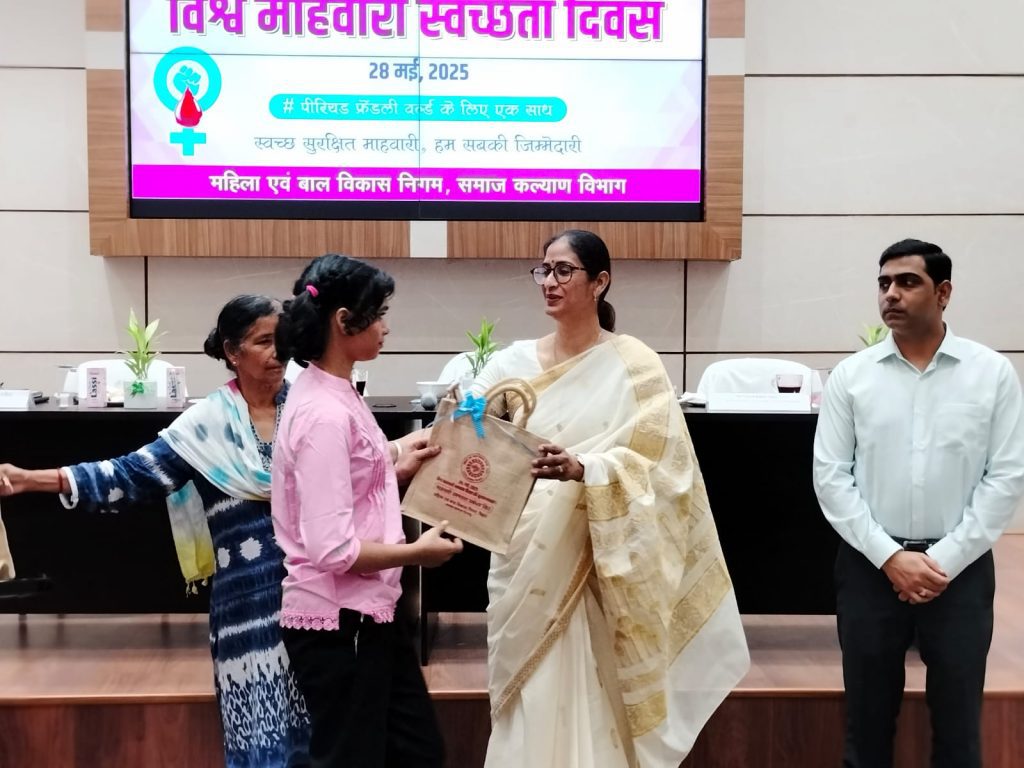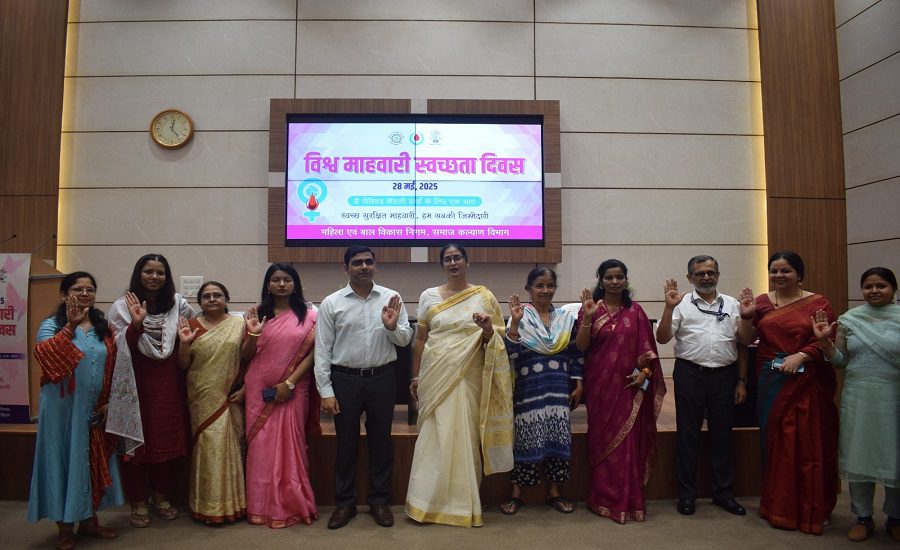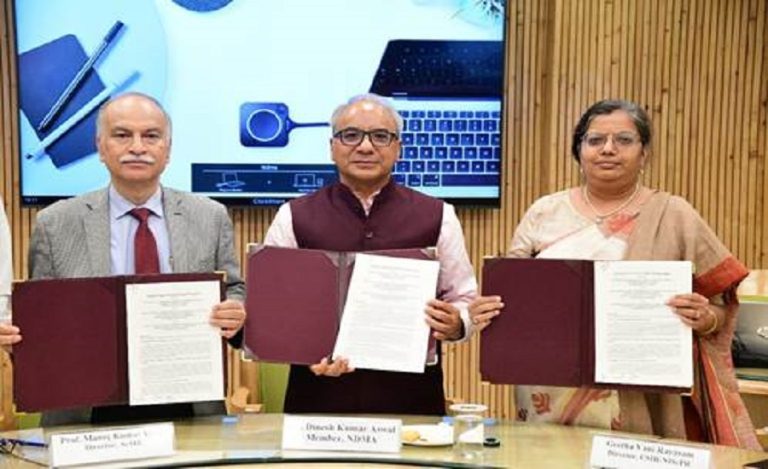Patna: Marking World Menstrual Hygiene Day, the Women and Child Development Corporation (WCDC) of Bihar organized a special awareness program at its Patna office. The event was chaired by 2003 batch IAS officer Bandana Preyashi, Secretary of the Social Welfare Department and Managing Director of WCDC, who emphasized that menstruation is a natural process and not a matter of shame or disease.
Vending Machines in Schools to Promote Hygiene
In a major announcement, Bandana Preyashi stated that the plan to install sanitary pad vending machines in all schools across Bihar will be accelerated. So far, 209 schools, as well as women’s toilets in several offices and public parks in Patna, have already received these machines under the initiative led by Mahila Vikas Nigam.
She also mentioned that under the Mukhyamantri Kishori Swasthya Yojana, over 22.58 lakh adolescent girls have received ₹300 annually for purchasing sanitary napkins.

Helpline 181 for Free Menstrual Health Consultations
To further support menstrual hygiene, Preyashi announced that free consultations with gynecologists will be made available every Wednesday and Thursday from 12 PM to 3 PM via the 181 helpline number. “This initiative will help young girls and women access reliable medical advice without stigma or hesitation,” she said.
Social Support and Education Are Key
Padma Shri awardee Sudha Varghese, founder of Nari Gunjan, addressed the emotional and physical challenges of adolescence, urging parents and teachers to support girls by educating them about menstrual hygiene.
UNICEF’s WASH specialist Prabhakar Sinha underscored that the program goes beyond government schemes – it is a step toward social transformation.

Film Screening and Youth Engagement
To break taboos and foster open dialogue, the event also featured a screening of the film ‘Padman’, based on menstrual hygiene management. Girls attending the event were encouraged to ask questions and speak about their experiences.
Other key attendees included UNICEF’s Mona Sinha, Manjusha Chandra, and Morgan Sinha, all of whom emphasized the need for continued awareness and policy-level support.




























